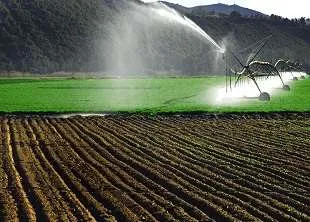What is agronomy?
Agronomy is the growing of field crops for use as human food, animal feed, fibre, oil seed production and some industrial products. Agronomy includes crops such as wheat, and cotton but does not cover vegetable, fruit, forestry and flower crops. This agronomy course covers specifically the production of broadleaf crops.
What will you learn?
You will learn about the biological and physical factors related to crop production. This online agronomy course covers crop physiology, plant breeding, pest control, soil science and management, crop rotation and tillage and more. The course is self-paced study so you can study at home, at your own pace.
Who is this online agronomy course suitable for?
This online agronomy course is suitable for you if you are interested in or currently involved in large or small-scale agronomy or related fields such as soils, seeds, agriculture, post-harvest management and more.
What will you do?
- Develop your understanding and confidently describe the nature and scope of agronomic practices within your country and others.
- Discuss what is grown, where it is grown and the diversity of practices used to grow a wide range of crops.
- Learn how to identify factors that affect the success of a crop; including soil condition, climate factors and biological influences such as pests and diseases.
- Clearly describe significant practices used by farmers in the growing of an agronomic crop; including the management of soils, water, cultivations and crop protection.
- Explain how to achieve successful seed germination for different agronomic crops under different conditions in the field.
- Discuss practices used to farm cereals for harvest and sale as cash crops.
- Discuss practices used to farm broadleaf crops for harvest and sale as cash crops.
- Understand the use of different harvesting equipment and techniques including post harvest handling for a range of different crops.
- Demonstrate your knowledge by producing a management plan for a crop from planting to post harvest handling.
Detailed Course Outline
This course is made up of a number of lessons or units. Each of these has self assessment questions, a set task (practical homework) and an assignment which you can upload online.
There are 8 Lessons in this course:
1. Introduction to Agronomic Practices
-
- Introduction
- Crop Types
- Plant structure and Function
- Transpiration rate
- Selection Criteria for Plants
- Understanding monoculture
- Row Crops
- Cover Crops
- Crop Operations
- Planter types
2. Culture – What influences crop growth?
-
- Soils
- Problems with soils
- Loss of soil problems
- Erosion
- Salinity
- Soil sodicity
- Soil acidity and alkalinity
- Improving soils
- Cultivation techniques
- Plant nutrition
- Nutrient deficiencies
- Organic fertilisers
- Soil life
- Insect Pests
- Diseases
3. Crop Husbandry Practices
-
- Operations
- Identifying weeds
- Ways to control weeds
- Spraying
- Irrigation
- Chemical crop protection
- Preparing plant pathogens for microscopic observation
- Culturing Pathogens
- Natural pest and disease control
- Physical controls
- Organic sprays and dusts
4. Seed and Seed Management
-
- Seed storage
- Types of seed storage
- Seed vigour testing
- Dormancy factors affecting germination
- Germination treatments
- Types of media
- Media derived from rock or stone
- Media derived from synthetic materials
- Organic media
- Diseases
- Salinity build up
5. Arable Cereal Crops
-
- Cereal crops
- Zadock scale
- Wheat
- Barley
- Oats
- Triticale
- Sorghum
- Maize
- Rice
- Millet
- Sugar cane
- Ryegrass
- Hay and Silage
- Quality control
- Storage and handling
- Hydroponic fodder
6. Arable Broadleaf Crops
-
- Characteristics of broadleaf crops
- Oil crops
- Chickpeas
- Narrow-leafed lupins
- Canola
- Faba beans
- Cover crops
- Common legumes
7. Harvesting
-
- Crop preparation for harvest
- Crop harvest equipment
- Forage harvesting equipment
- Cereal harvesting equipment
- Root crop harvesting equipment
- Grain storage
- Contract harvesting
8. Crop Management – Special Project
-
- Project-based Learning: Crop management from planting to post-harvest handling
When you have completed the lessons of your Certificate course, you will be given the option of taking the optional exam. It’s okay if you don’t want the exam, we still issue your Careerline Certificate. For Advanced Certificates however, the exam is compulsory (per module) and are included in the course fee.

